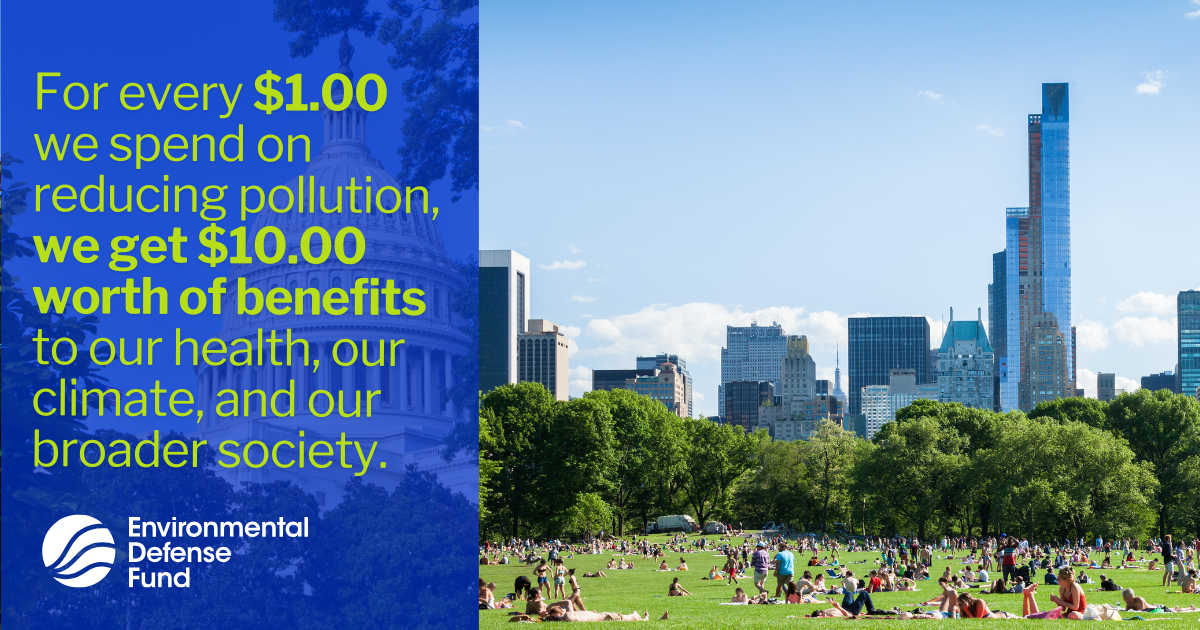Trump Moves to Cook the Books, Undercutting Common Sense Climate Protections
This blog was co-authored with Martha Roberts
It’s reported that the Trump Administration is poised to continue its barrage of attacks on some of our most vital health and environmental protections, following last week’s assault on broadly supported fuel economy and greenhouse gas safeguards for cars and light trucks. Here’s one attack that they may try to sneak under the radar—a move that would undercut common sense climate protection all across the federal government: directing federal agencies to abandon the use of social cost of carbon estimates in their evaluation of new policy.
The social cost of carbon is a measure of the economic harm from the impacts of climate change. Specifically, it’s the dollar value of the total damages from emitting one ton of carbon dioxide into the atmosphere. Weakening or eliminating the use of the social cost of carbon would result in skewed and biased policy-making that ignores the benefits of crucial safeguards and stacks the deck against actions to protect communities from the mounting costs of climate change.
The devastating impacts of climate change on health and the environment – such as extreme weather events, the spread of disease, sea level rise, and increased food insecurity – can cost American businesses, families, governments and taxpayers hundreds of billions of dollars through rising health care costs, destruction of property, increased food prices, and more. Many of these impacts are already being felt by communities across the country, as the government’s leading scientific agencies have found.
When the federal government develops policy affecting the carbon pollution causing climate change, it is both reasonable and essential that it takes these costs into account. The social cost of carbon is a tool that allows policy-makers to do just that.
Currently, the federal government uses a social cost of carbon estimate—roughly $40 per ton of carbon pollution—that was developed through a transparent and rigorous interagency process, relied on the latest peer-reviewed science and economics available, and allowed for repeated public comment as well as input from the National Academy of Sciences.
But that may not last much longer. As we’ve seen, the Trump Administration is waging war against an array of our most crucial health and environmental protections, ignoring the urgent threat of climate change while prioritizing fossil fuel interests. President Trump’s new Administrator of the Environmental Protection Agency, Scott Pruitt, denies that carbon pollution is a primary contributor to climate change, and built his political career by suing EPA 14 times as Oklahoma Attorney General to block protections from mercury, arsenic and smog pollution, hand in hand with the worst elements of the fossil fuel industry. Meanwhile the Administration is proposing devastating cuts to the budgets for EPA and climate research, and is moving towards revoking the Clean Power Plan, America’s first-ever nationwide limits on carbon pollution from power plants.
All of this points to a clear disregard for basic science, economic principles, and our nation’s clean air laws. Eliminating or weakening the social cost of carbon is another pernicious tactic by the Administration to undermine the development of crucial climate safeguards – by erroneously making it appear as though reducing carbon pollution has little or no benefit to society and the economy. Even the current figure is very likely a conservative lower bound since it does not yet include all of the widely recognized and accepted impacts of climate change.
The details of the upcoming attack are still unclear. It’s possible that the Administration may end use of the uniform social cost of carbon estimate at the federal level—despite its rigorous basis and judicial precedent. Other indications suggest that the Administration may choose to artificially and arbitrarily discount the costs of climate change for the health and economic well-being of our kids, grandkids, and future generations—ignoring the growing consensus among economists that supports valuing these impacts more, as does a recent report from the Council of Economic Advisors. Or the Administration may decide to disregard the fact that our greenhouse gas pollution has harmful impacts outside U.S. borders that can have costly repercussions for Americans.
Throwing out the social cost of carbon may play well with President Trump’s supporters in the fossil fuel industry. But the importance and appropriateness of accounting for these costs is a matter of both economics and law. We also know that nearly two thirds of Americans are concerned about climate change. Undermining limits on pollution—protections that are rooted in rigorous scientific research, reflecting long-standing bipartisan economic principles—will ultimately harm the health and environmental safety of all Americans, including Trump’s supporters.












